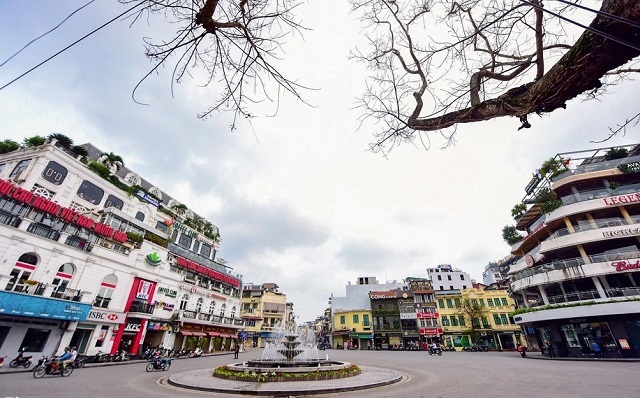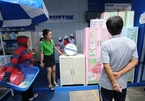Experts believe that it’s necessary to figure out a roadmap for re-opening business fields at suitable moments. The principle for now is developing the economy while fighting the epidemic at the same time.

To Trung Thanh from the Hanoi Economics University stressed that the government needs to choose the right economic sectors to gather strength for economic recovery.
The foreign invested sector makes up 20 percent of GDP, SOEs 30 percent, and the remaining 40 percent comes from private enterprises.
|
The foreign invested sector has suffered heavily from Covid-19 because the enterprises are deeply involved in global value chains. Meanwhile, both upstream and downstream chains have been hit hard by the epidemic. |
The foreign invested sector has suffered heavily from Covid-19 because the enterprises are deeply involved in global value chains. Meanwhile, both upstream and downstream chains have been hit hard by the epidemic.
Thanh believes that Covid-19 will increase protectionism and anti-globalization sentiment triggered some years ago.
The state-invested sector mostly comprises large enterprises. A report shows that though the number of SOEs just account for 0.8 percent of total enterprises, their operation scale accounts for 72 percent.
Large enterprises have also been hit hard by Covid-19, while their capability of adapting to difficult conditions is lower than others. The recovery of the sector will go more slowly.
Meanwhile, private enterprises are mostly small and medium enterprises and business households, which make the greatest contribution to GDP. The typical characteristic of the economic sector is that they are very small in scale and can easily adapt to shocks.
Since the enterprises are not involved deeply in the global value chains, their recovery won’t heavily depend on the epidemic situation in the world.
Therefore, Thanh believes that the government needs to create more favorable conditions in terms of finance, business environment and development policies to speed up the recovery of the private sector.
Dinh The Hien, director of the Institute of Applied Informatics and Economics, thinks that production for export needs to be the focus.
He said after Covid-19, countries will relocate production to other countries and Vietnam needs to maintain exports to be able to catch the trend.
The expert has also suggested allowing the re-opening of restaurants and eateries. This will consume big amounts of farm produce and stimulate demand. Besides, this will help create jobs for a high number of workers, especially freelancers.
He also said it is necessary to resume passenger and cargo transport soon. As for night services and crowded gatherings, Hien believes that they will still have to wait more time to reopen.
Le Ha

VN businesses redirect production to adapt to Covid-19
Some large corporations have shifted to making products that can be useful in the fight against Covid-19. Vingroup has promised to make ventilators, and garment companies are making face masks from antibacterial fabric.

VN businesses switch from ‘standby’ to ‘run’ mode to earn money
Unable to wait for the pandemic to end and seeing revenue drop to zero, businesses have been trying every method to earn money in the Covid-19 crisis.
 Prime Minister Nguyen Xuan Phuc has requested MPI to build a scenario for economic recovery after Covid-19.
Prime Minister Nguyen Xuan Phuc has requested MPI to build a scenario for economic recovery after Covid-19.